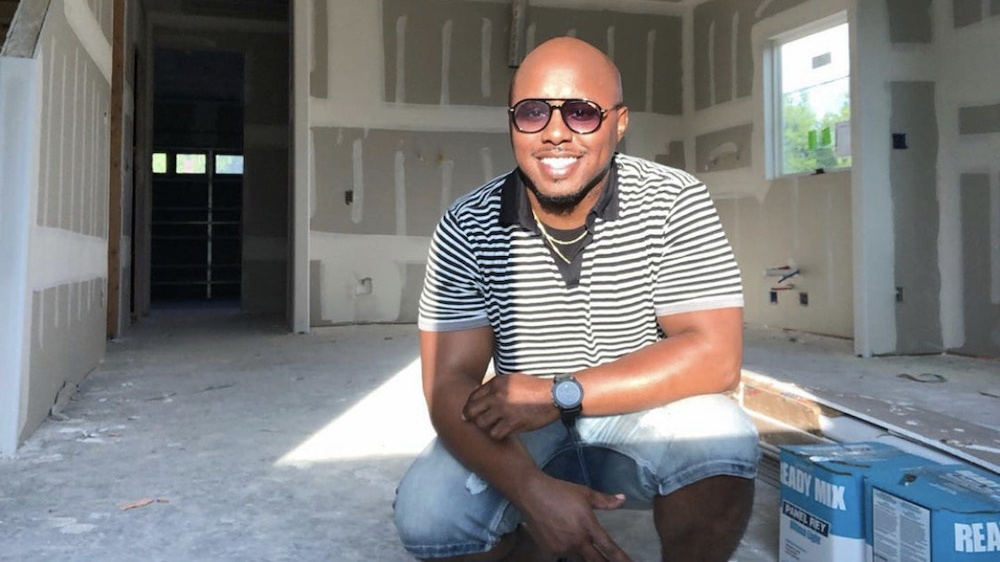If you’re interested in sharing your opinion on any cultural, political or personal topic, create an account here and check out our how-to post to learn more.
____
Believe it or not, my story about buying an entire block in the 5th Ward of Houston in 2013, and then redeveloping that block, started when I became a teenage father at the age of 16. I had two choices: make excuses, or make a way. I chose to face my responsibilities head on.
I worked throughout high school, went to college on a full academic scholarship and got an engineering degree. Then I got a salaried corporate railroad job and bought a house at 22. However, about a year into the corporate world, I felt like I was sold a dream — long hours, glass ceilings and bosses that made more money but still seemed miserable. So, I spent the next few years reading and learning about real estate investing.
In 2009, I flipped my first house with the help of a contractor who was also an investor. However, I still felt like the "buy and hold, and fix and flip" models were selfish wealth building ventures. I wanted to tackle something bigger. That something turned out to be changing the narrative on gentrification. I found out from my linebrother (Omega Psi Phi) that a slumlord in 5th Ward may have been ready to sell the properties he had inherited from his Jewish father.
At the time (2013) this historically Black neighborhood, that was once prominent, was now one of the worst places in the city. It was known for prostitution and drugs. On this particular block, there was a rundown grocery store, an abandoned tax office, a shabby closed down hamburger joint and five houses. After a few sit-down meetings to build a rapport, I made an agreement with the seller to purchase the entire block for $400,000. I didn't have the money to pay cash and I couldn't get bank funding, so I used a creative method called owner financing to acquire the properties from the landlord/seller that owned every property on the block. I paid him 10% and started making payments to him monthly.
For three years I ran parolee housing for felons on the property. These were non-violent offenders that needed a place to live, but had a very hard time finding housing because of their records. Most of them had trades like carpentry, plumbing, electrical, etc. So anything that broke, they fixed. They were happy to have a place to live. It was a win-win.
In 2016, I noticed the area was changing and becoming more developed. After seeing the development patterns in the surrounding neighborhoods, I decided to get ahead of the curve and take action. My aggressive (and risky) forward-thinking led me to begin developing middle class townhouses on the block at the age of 33. It took me two years to get traction with the project.
I was turned down by 23 banks for the construction loan. So I had to sell all my rental properties and use the cash to get the project as far along as I could. I took on one investor that put in $250,000 from a 401k that she rolled into a self-directed IRA. That was the icing I needed on the cake to get rolling.
What makes my approach different from most developers is that my vision isn't to build nice houses and sell them to the highest bidder. My plan was always to get successful people originally from the neighborhood to move back in.
I believe an area can be revitalized by someone who looks like people from the area. It can then be occupied by residents that are from the neighborhood. Doing so will keep the culture of the community intact while improving the neighborhood and increasing tax dollars, which would improve schools. It also puts the buyers in a great position to see lots of value appreciation while the neighborhood comes back to life.
I made it a point to not only bring those that are originally from the area back from the suburbs, but to also only hire from the neighborhood and build a team of successful African American professionals around me. My construction team, realtors, preferred lenders, insurance agents and inspectors are all from the community.
My buyers are happy that I have created a space for them in neighborhoods that otherwise would only have a focus on low-income housing, which left them no option but the suburbs. The neighbors are happy that I’m taking over the blighted, abandoned, drug-infested properties and not displacing anyone. I’m, in fact, doing the opposite — bringing them neighbors that take pride in home ownership and will be good stewards of the community. I’m blessed to be in this position.
My movement is gaining momentum and I want to create a change in the narrative of gentrification by outsiders. We need to rebuild our own communities and make them as vibrant as they once were.
